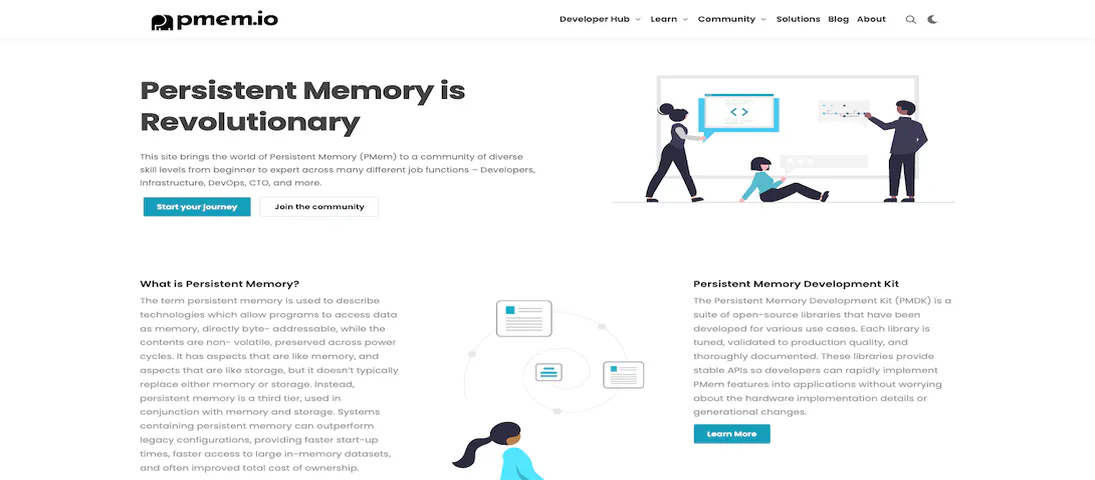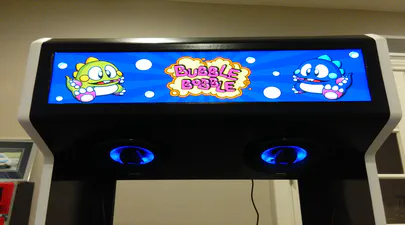
pmem.io website
- Projects
- January 25, 2020
Today, I’m diving into the process of designing and building PMem.io, the website for the Persistent Memory Development Kit (PMDK). We’ll explore how we migrated the site from Jekyll to Hugo, a static site generator, and crafted a custom Tailwind CSS theme to support the new website’s features.
Requirements
Before diving in, let’s outline the key requirements we wanted for the updated PMem.io website:
- Improved User Experience (UX): A clean, modern, intuitive, and responsive design that caters to users from diverse technical backgrounds.
- Content Management: A user-friendly content management system (CMS) to simplify content creation and updates.
- Documentation Integration: Seamless integration with existing PMDK documentation for easy access.
- Community Building: Features to foster interaction and collaboration within the PMDK community.
- Static website for speed as there’s no dynamic content.
- Fast SSG build time.
- Improved searchability.
We chose to migrate PMem.io from Jekyll to Hugo for several reasons:
- Speed and Performance: Hugo offers superior build times compared to Jekyll.
- Scalability: Hugo’s architecture is better suited for handling a growing website with a large volume of content.
- Flexibility: Hugo’s templating system provides greater flexibility for creating custom layouts and functionalities.
To achieve the desired UI/UX for PMem.io, we opted for a custom Tailwind CSS theme. Here’s why Tailwind was a great fit:
- Rapid Development: Tailwind’s utility-first approach allowed for faster development and easier maintenance of the website’s styles.
- Customization: Tailwind provides granular control over styles, enabling the creation of a unique and consistent design for PMem.io.
- Responsiveness: Tailwind’s built-in responsiveness ensured the website adapts seamlessly to different screen sizes.
You can visit pmem.io to see the live website or the pmem.github.io repository to see how it’s built. The website uses GitHub Pages as the build and hosting solution.
